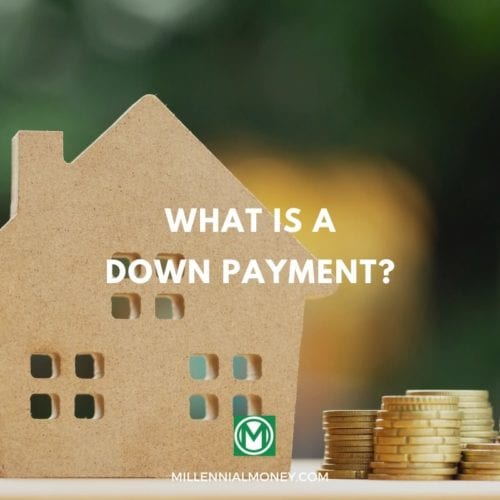Is there a homeowner who hasn’t considered doing a cash-out refinance?
If you’ve been a homeowner long enough, and you’ve built up substantial equity, you’ve probably thought about it at least a few times.
But what is a cash-out refinance, what are the risks and tax implications, and is a cash-out refinance a good idea?
What is a Cash-Out Refinance?
A cash-out refinance is a new mortgage you take on your home that involves the receipt of funds over and above paying off the current mortgage indebtedness.
That said, there are three general types of cash-out refinances:
- A refinance where you take out additional funds to make improvements to the home itself.
- A “limited cash-out” is when the new loan not only pays off existing indebtedness but also covers the closing costs. For conventional mortgages, you can also receive the greater of 1% of the new loan amount, or $2,000 without the loan being considered full cash-out refinance.
- A true cash-out refinance involves taking substantial funds from the new mortgage to be used for purposes unrelated to the subject property. The third example is what is most commonly understood to be a cash-out refinance. You might refinance your home to take out funds to pay off high-interest credit card debts, fund your child’s college education, or even to purchase another property.
How Does a Cash-Out Refinance Work?
Just like any other type of refinancing, a cash-out refinance is the financial equivalent of buying your home back from yourself. Though that isn’t true in the legal sense, since the property never legally changes hands, it is the equivalent where the mortgage is concerned.
That’s because any type of refinance requires you to go through the same financing process you did when you first purchased the home.
For example, you’ll need to complete a mortgage application, submit all required documentation, be qualified for the loan, go through the information gathering process, be subject to loan approval, have a new closing, and have all new loan documents recorded at your municipal or county government offices.
More specific to a cash-out refinance, however, is that you’ll be taking additional cash out of your home equity, over and above the current level of mortgage indebtedness. As a result, the new mortgage amount will be higher than the old one, and may even be higher than your original mortgage amount (when you purchased the home) if you’re taking out a lot of cash equity.
For example, let’s say 10 years ago you purchased your home for $200,000 with a $190,000 mortgage. But in the past decade, the value of the home has risen to $300,000, and you’ve paid your original mortgage balance down to $170,000.
You decide to do a cash-out refinance equal to 80% of the current appraised value of the property, or $240,000.
It’s considered a cash-out refinance because the new mortgage exceeds the old mortgage balance by $70,000, which is the amount of the cash-out.
You may use the extra cash to pay for closing costs, to make improvements to your home, or for some purpose completely unrelated to the property.
Be aware that just as it was when you took your original mortgage, there will be closing costs on your refinance. They’ll typically be equal to between 2% and 3% of the new mortgage amount. That will reduce the net amount of cash you’ll get back from the refinance.
Income Tax Implications of a Cash-Out Refinance
The income tax implications of a cash-out refinance will be important to you, at least if you are able to itemize your deductions on your tax return, and include mortgage interest.
Under current tax law, you can deduct the interest paid on a home mortgage taken in the amount of$750,000 for married couples filing jointly or $375,000 if you’re filing separately. But even on those amounts, the interest will be deductible on a cash-out refinance only if the additional indebtedness is taken to purchase, construct, or make substantial improvements to either a primary or secondary residence.
There used to be a provision in the tax code – prior to 2018 – that allowed you to deduct mortgage interest on up to $100,000 in indebtedness taken for purposes other than the property itself. But that provision was eliminated under the Tax Cuts and Jobs Act of 2017.
If you’re considering a cash-out refinance, you must be aware that you will not be able to deduct interest on any portion of the new loan that is not used specifically for the property itself, or to pay off existing indebtedness on same.
Pros and Cons of a Cash-Out Refinance
As tempting as it may be to take the plunge and withdraw equity from your home with a new mortgage, you should first do a thorough evaluation of the pros and cons of a cash-out refinance:
Pros:
- If you have substantial home equity, you’ll be able to get a large amount of cash out through a cash-out refinance.
- Since interest rates on mortgage financing are lower than other types of loans, you’ll be able to eliminate high interest on other debts, particularly credit cards.
- A cash-out refinance can be the ultimate form of debt consolidation.
- A cash-out refinance is probably the single best way to raise funds for home renovations and other improvements.
- If the new mortgage is not more than $750,000 (or $375,000 if you’re married filing separately), the interest on the refinance will be fully tax-deductible as long as the proceeds are used to improve the property itself.
- A cash-out refinance can be an excellent source of funds for a life improvement venture, like launching a new business or paying for your child’s college education.
Cons:
- As mentioned earlier, you’ll need to pay closing costs equal to between 2% and 3% of the new loan. That will reduce the amount of cash you’ll receive from the refinance.
- In most cases, the higher loan amount will translate into a higher monthly payment on your home.
- Though using a cash-out refinance can be a good way to consolidate high-interest credit card debt, you’ll be converting short-term debt into very long-term debt.
- If you have any idea to pay off your mortgage early, a cash-out refinance will see you heading in the opposite direction.
- Puts your home at greater risk – Cash-out refinances are a popular idea when real estate values are rising. But if values suddenly turn south, the higher loan amount will cause your equity to evaporate faster. That could potentially put you at greater risk for foreclosure.
- This con is a factor that is completely within your control, but it’s very common that one cash-out refinance turns into another. Eventually, you can engage in serial refinancing, which will put you into a conundrum where you will owe ever-increasing amounts of debt on your home.
Is a Cash-Out Refinance a Good Idea?
Even with all the cons associated with cash-out refinancing, there are still times when a cash-out refinance makes abundant sense.
In the pros listed above, I described life improvement ventures. If the equity in your home is your primary asset, it may be the best source of funds to finance an activity that will improve life for you and your family.
Examples I cited included paying for a college education for your child. But you can just as easily do the same for yourself if you decide it’s time for a career change that requires more education. Though you’ll be taking equity out of your home, it will be for the primary purpose of increasing your ability to earn a living. That will almost certainly more than offset the financial risks associated with a cash-out refinance.
Starting a business is also a compelling reason. But there are some strong caveats here as well. Many new business ventures fail, often because the business owner lacks skills, experience, or even understanding of the activity. If you’re going to borrow money to start a business, particularly from the equity in your home, make sure it’s a business in which you’re likely to succeed. That means it’s well within your skill set and experience level. But it should also be a business where you have demonstrated capability, such as the development of at least a small positive cash flow.
For example, let’s say you start a business as a side hustle. You decide it’s time to take it up to the next level, and that will require a large cash investment. Using a cash-out refinance will make sense because this is another way to invest in a higher future income.
Where cash-out refinances become particularly risky is debt consolidation. It can make sense if you only look at the money you’re saving in interest. For example, paying off credit cards averaging 20% interest with a 4% rate refinance on your home will save you a small fortune in interest. But the move will only make sense if you’re fully prepared to put an end to your credit card addiction once and for all.
In that case, not only will the cash-out refinance save you money on interest – and maybe even lower your overall monthly payments – but it will also work to create a better financial future for you.
Alternatives to Cash-Out Refinancing
No discussion of cash-out refinancing would be complete without consideration of the alternatives. They should always be evaluated before going the cash-out refinance route.
There are two that can make sense in many cases.
- Personal Loans: These are unsecured loans that can be used for virtually any purpose, and require no collateral. You can get loans with interest rates as low as 5.99%, and there is a long and growing list of lenders in the personal loan space. You can borrow up to $40,000, with repayment terms typically running between three and five years. These may be a preferred way to get funds for either debt consolidation or business investment.
- Secondary Home Financing: This can include home equity loans and home equity lines of credit (HELOCs). A home equity loan serves the same purpose as a cash-out refinance. It’s a second mortgage in which you take out some of the equity in your home. These loans typically have a fixed monthly payment, and a specific loan term, generally between 10 and 15 years. HELOCs are essentially credit lines secured by your home. You can take a credit line up to an amount determined by the lender, then access the funds and repay them on your own schedule. Interest rates are typically very low, since they’re tied to short-term indexes, and also often come with an introductory interest-only period.
Both options have the same pros and cons of cash-out refinances.
But they essentially isolate the cash-out portion of the financing into a dedicated loan. They also avoid disturbing the payment and repayment term on your first mortgage.
You should consider either personal loans or secondary home financing before doing a cash-out refinance.
Is a Cash-Out Refinance For You?
Whether or not you should do a cash-out refinance depends on the benefit you’ll get versus the risks you’ll be taking on to make it happen.
But generally speaking, if it can improve your financial life in a material way, a cash-out refinance is worth doing.
But if you’re looking to do it primarily as a convenience – like maybe because you don’t have the inclination to pay off too much high-interest credit card debt – you may want to consider using an alternative.
If your house is one of your biggest assets, you shouldn’t put it at greater risk for anything that doesn’t represent an absolute necessity – and a major financial step forward.





No comments yet. Add your own